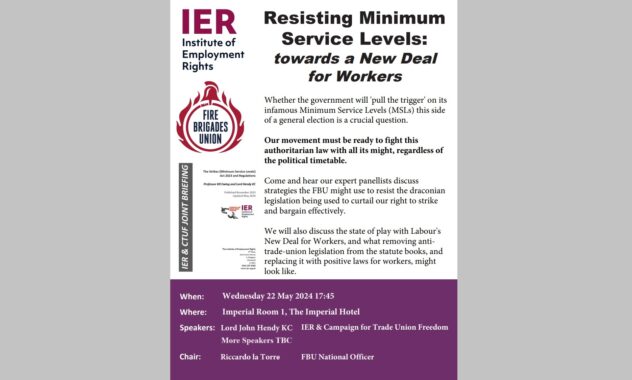RMT members overwhelmingly back further industrial action as the Strikes Bill returns to the Commons
Results are for a re-ballot of members working for 14 train operating companies

RAIL union RMT announced the results of a re-ballot of members working for 14 train operating companies today which massively re-affirmed a mandate for further strike action.
All the ballots passed the 50 per cent participation threshold imposed by the government’s anti-trade union laws and included massive votes for further strike action.
RMT general secretary Mick Lynch said that the overwhelming backing for further strike action across 14 train operating companies was a de-facto referendum on the dispute.
“It is clear from these results that members are not prepared to accept a pay offer based on mass job cuts and major attacks on their terms and conditions. This sends a clear message to the employers that the huge anger amongst rail workers is very real and they need to recognise that fact, face reality and make improved proposals. They need to get around the table with RMT and negotiate in good faith for a better deal for rail workers.”
In the meantime, the Government’s controversial Strikes (Minimum Service Levels) Bill, which began it’s like as the Transport Strikes (Minimum Service Levels) Bill, is winging its way back to the House of Commons from the Lords, where it suffered a number of defeats.
A combination of Labour, Lib Dem, crossbench peers and bishops voted in support of amendments that neutered the worst bits of this terrible legislation, including:
- keeping the protection from unfair dismissal for individual workers who fail to comply with the forced work notices imposed by employers.
- removing the requirement on unions to have to encourage their own members to break strikes.
- taking devolved governments and service providers in Scotland and Wales out of the bill.
What’s next?
The legislation will go back to the Commons – probably in the middle of May. MPs will debate and take votes on the amendments and the government’s majority will obviously tell. The bill will then go back to the Lords, at the end of May, for it’s Third Reading, giving peers an opportunity to respond and potentially vote in support of those amendments again – a process known in parliament as ping pong.







